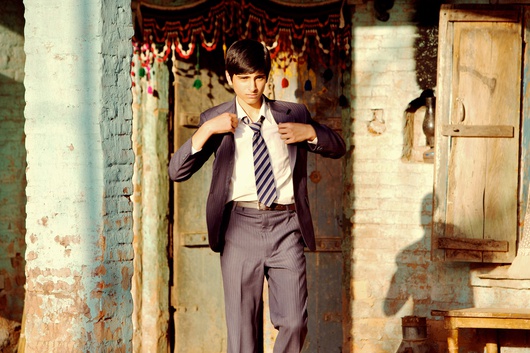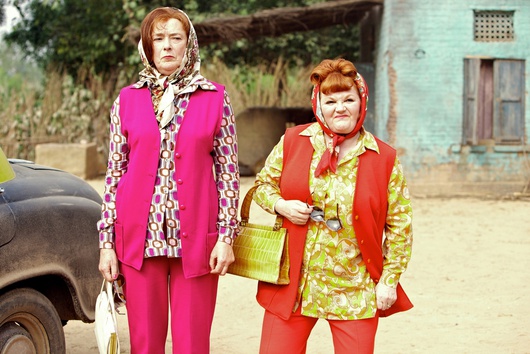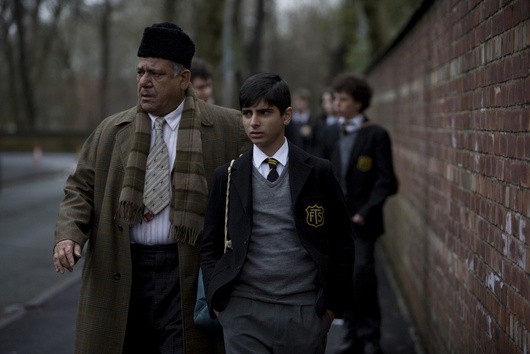Berlin film festival 2011: sequel to British-Pakistani East is East, West is West
Published on
Sajid (Aqib Khan) is fifteen and he's no 'Paki'. Cue racism at school and shoplifting and off he is packed to the Punjab with his father George Khan (Om Puri), the 60-year-old owner of the local chippy, who is determined to straighten him out.
 Except for all the trials and tribulations this young family of eight went through in the first film East is East, as English Pakistanis growing up in sixties Salford, it's nothing compared to what's awaiting George. In rural Pakistan, where we go with the film within the first half an hour to stay for a pleasant 102 minute ride, George is Jahangir. George is Jahangir who married his first wife when she was fifteen, had two daughters with her and subsequently never came back from his next life in England.
Except for all the trials and tribulations this young family of eight went through in the first film East is East, as English Pakistanis growing up in sixties Salford, it's nothing compared to what's awaiting George. In rural Pakistan, where we go with the film within the first half an hour to stay for a pleasant 102 minute ride, George is Jahangir. George is Jahangir who married his first wife when she was fifteen, had two daughters with her and subsequently never came back from his next life in England.
 West is West is probably not the sequel expected after the phenomenal success of East is East in 1999. The sixties for this family seem to have treated them better, in a more raw mode, than the seventies. Maybe it's that the soundtrack was better in the first film. But it really shows that writer Ayub Khan Din and new director Andy De Emmony were right to wait the best part of a decade before cooking up this follow-up coming-of-age delight. The Pakistani scenes are not heavily stylised but true to life there, and seeing Brits in Pakistan as opposed to Pakistanis in Britain really is a suitable turn of the tables. It's comfortable watching Sajid learning to be half of what he didn't know how to be.
West is West is probably not the sequel expected after the phenomenal success of East is East in 1999. The sixties for this family seem to have treated them better, in a more raw mode, than the seventies. Maybe it's that the soundtrack was better in the first film. But it really shows that writer Ayub Khan Din and new director Andy De Emmony were right to wait the best part of a decade before cooking up this follow-up coming-of-age delight. The Pakistani scenes are not heavily stylised but true to life there, and seeing Brits in Pakistan as opposed to Pakistanis in Britain really is a suitable turn of the tables. It's comfortable watching Sajid learning to be half of what he didn't know how to be.
 The film deals with some tricky themes for a generation fourteen audience - which is the section that it was shown in at the 61st Berlin film festival - but polygamy, domestic violence, hyprocrisy and foul mouths are well handled in the movie. Om Puri can seem like a parrot with the same lines he uses as in the first film, but it's mostly true to form, and Linda Bassett opposite him as second wife Ella is just a delight to watch. Four stars.
The film deals with some tricky themes for a generation fourteen audience - which is the section that it was shown in at the 61st Berlin film festival - but polygamy, domestic violence, hyprocrisy and foul mouths are well handled in the movie. Om Puri can seem like a parrot with the same lines he uses as in the first film, but it's mostly true to form, and Linda Bassett opposite him as second wife Ella is just a delight to watch. Four stars.
Catch West is West in UK cinemas in February 2011
Read cafebabel.com Berlin's analysis of the identity crises present in this years Berlinale films (in German)



